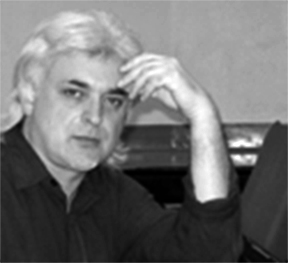
by Mischa Kopitman
“Music is your own experience, your thoughts, and your wisdom. If you don’t live it, it won’t come out of your horn.” – Charlie Parker
This series of articles is addressed to novice and experienced young solo musicians who enter the field of competitive music-making. These ideas are not intended as a cookie-cutter blueprint for winning, as no such blueprint exists. However, I’m confident that some of my suggestions, if followed, can help young soloist maximize his/her chances for success. Feel free to consider and experiment. Use ideas you feel comfortable with and discard those that don’t fit your personal approach or the ones your teacher disagrees with. Most importantly: Be Unique! Be Original! Be Yourself!
I. Evaluation Elements
Competition administrations usually provide jury members with evaluating forms, which list judging categories for assessment. Some competitions use very elaborate forms, some rather simple forms. Usually, scores from all judges are averaged and average score used to determine winners.
Here are some general areas of music performance evaluated in these forms: Artistic ability, musicianship, presentation, technique, interpretation, stage presence, ability to communicate music structure and conform to correct stylistic interpretation and so on. Sounds complex? Yes. It does.
Let’s briefly discuss the main categories:
-
Technique: (Differs from instrument to instrument): Note and rhythm accuracy: Pedaling; Correct pitch and intonation: Secure finger-work; Breath control; Vocal color; Secure scale and arpeggio passages etc.
-
Musicality: Appropriate and expressive dynamics and articulation: Expressive phrasing; Valid stylistic interpretation; Ability to communicate overall structure of the piece and its rhythmic, harmonic and melodic elements. Appropriate tempo; Appropriate interpretation of the score compatible with generally accepted practice etc.
-
Presentation: Poise: Stage presence: Ability to communicate music to the audience etc.
-
X factor: Some call it “artistry,” or “artistic ability.” Some call it “talent” or “potential.” This element (if included in adjudication) is the most difficult to assess.
II.Making an Impression
Competition judges are musicians who dedicated many years to intense music study. We all respect dedication, commitment, and passion for music making. Experienced competition jury judges can and will recognize those qualities in your performance!
If you appear to play mechanically and without total involvement, the judges will not be kind to you. But if you appear to be sensitive to music and carefully craft every phrase, every interval, every note, the judges will reward you for it. Several years ago I adjudicated a teen cellist. He playing was secure and he appeared focused and “into it.” But then, an audience member walked into the hall to the side of the stage. The cellist took his attention from the music to openly stare at the person walking by. While still playing the piece without any changes. It made a very negative impression on me. He didn’t win a prize. Moral of the story: Be “into it.” Respect the music!
III.Competition Judges: Who Evaluates the Evaluators
“The test of a first-rate intelligence is the ability to hold two opposed ideas in mind at the same time and still retain the ability to function”— Scott F. Fitzgerald
Consider that evaluation in performing arts is mostly subjective. Jury members are musicians with (often) well-established tastes in music. And their assessment of performance often varies. Sometimes by a wide margin. And often with well-articulated and specific reasons! And ALL of them are correct. Because music assessment is a combination of objective and subjective elements. Examples of objective elements—accurate performance of notes, rhythms. Examples of subjective elements—interpretation, music artistry, ability to communicate e with the audience.
Most jury members strive to be objective and impartial. To develop successful professional careers, musicians (without exception) undergo many years of rigorous examinations and evaluations. Most jury musicians are sensitive and compassionate to those undergoing the same. We want to award every performer who practiced hard and has the bravery to walk out onto the stage and play their heart out. But that would make the evaluation process meaningless. Choices must be made. However painful. This has been my experience, and I am certain this is an experience of every jury member, performer, and music lover faced with making musical choices.
Music is a transcendent and highly abstract and subjective art form. Let’s all humbly accept it and serve the fickle Muse to the best of our ability!
IV.Old Competition Scandal: Subjective Passion and Objective Fury
1980. Brilliant young pianist Ivo Pogorelich didn’t make the finals of Chopin Piano Competition due to his mildly unusual Chopin playing. But some of the judges (Martha Argerich and Paul Badura-Skoda) thought Ivo was a genius and quit the jury in furious protest. What happened to Pogorelich? He turned the loss into a great recording contract and became a music star. The actual winner of 1980 Chopin competition—not so much. A lesson in subjectivity.
You Be The Judge
Listen to one of the performances that lost Pogorelich the competition, but won him stardom.
Chopin Scherzo No. 3, Op. 39
Compare it to one of the last great Romantics, Arthur Rubinstein playing the same piece:
https://www.youtube.com/watch?v=defpNc1TQNI
Evaluate technique, dynamics, tempo, rubatos, musical expression and stage presence. Which one do you prefer? Why? Please post your comments.
To be continued…
Please read Part 2 of the Winning A Music Competition: Sight Over Sound.
© 2015 Mischa Kopitman. All Rights Reserved.
